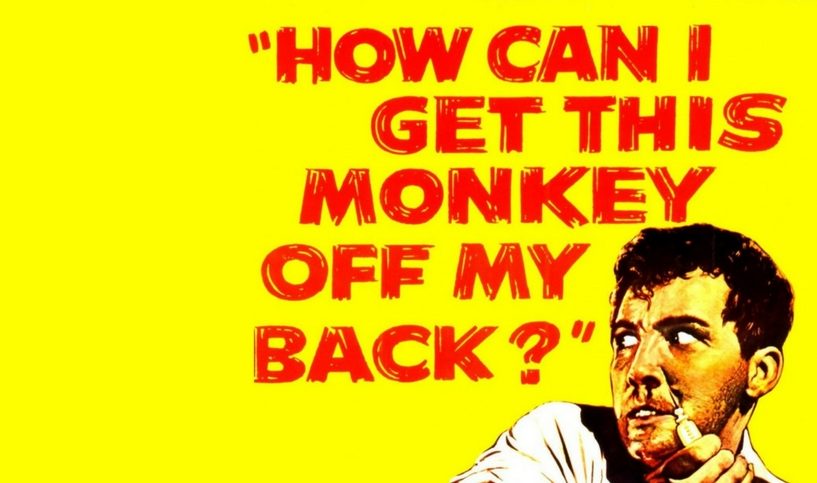‘’If you really want to escape the things that harass you, what you’re needing is not to be in a different place but to be a different person.” -Seneca.
Every time someone says, “Not my monkeys,” I laugh. Usually, that person is standing with his or her hands up, clearly refusing to take on whatever is the issue at hand.
Research tells us that too much stress is bad for us. The Centre for Addiction and Mental Health states, “We are likely to feel stressed in situations of high pressure or demand, or when we perceive a threat to our well-being or life, or feel we don’t have the resources necessary to cope with the demands placed upon us.”
It’s that last sentence that I want to chat about. “…or we don’t feel we have the resources necessary to cope with the demands placed upon us.” Specifically, I want to have a little chat about the demands we place on ourselves. You know, that pesky little voice in our heads that says, “You should…” “You shouldn’t…” “You ought to…” “You have to…” Right? That voice. We all have that wretched voice (sometimes, it sounds a lot like a parent). Those unwritten rules we keep or the performance standards we expect of ourselves cause stress…and we know that too much stress is implicated as a factor in everything from anxiety to ulcers to heart attacks.
“Seventy-five percent to 90% of all doctor’s office visits are for stress-related ailments and complaints. Stress can play a part in problems such as headaches, high blood pressure, heart problems, diabetes, skin conditions, asthma, arthritis, depression, and anxiety.” (APA.org)
Clearly, excess stress is bad for us. When we have unwritten rules or expectations of ourselves (wherever they originate), we unwittingly do things that increase our stress load. Think about this scenario – maybe it’s familiar. You’re in your office, minding your own business, and a colleague comes and tells you about a problem that she is facing. Before you know it, you’re phoning/texting/Googling something or someone in an effort to find a solution to your colleague’s problem. And that colleague? Sitting there letting you solve the problem. Her monkey is now on your back.
Or this one. You’re invited to something and you can’t say ‘No’ because you’re afraid of what the other person will think of you. Now you have two monkeys…the whole circus can’t be far behind.
These behaviors are connected to stress because in taking on other people’s problems, or offering help before it’s requested, or making decisions based on trying to control what you imagine other people think of you causes stress. The feeling that you don’t have the inner resources to meet all the obligations you signed up for. Instead of doing what you need to do, you’re taking care of someone else’s business. Instead of doing what you want, you’re people-pleasing. Totally stressful.
Here are some tips to keep those monkeys off your back:
1. Don’t offer a solution to someone else’s problems. Instead say something like, “I can see that’s a problem for you. How are you going to solve it?” There are two key principles at work here. Other people’s problems are not our responsibility, and people only truly learn from their own mistakes and experience. We’re not actually helping when we solve someone else’s problem.
2. Don’t offer to help unless you are specifically asked. Press those lips together and refrain from volunteering to help someone unless or until that person has asked for help. Mostly, we offer to help to meet our own needs. A key principle here, too. There’s a degree of humility required in asking for help, and we all need more humility. By asking for help, we are signaling a willingness to learn. Don’t rob others of the opportunity to learn.
3. What other people think of you is none of your business. Really and truly. In theory, not caring what other people think is easy. Putting it into practice is hard. People-pleasing comes with a heavy price. We are always focused on imagining what others are thinking and trying to adjust our own lives to avoid any possibility of making a negative impression. What a horrible way to live. In reality, some people will like you, others won’t. In either case, it’s not the beginning or end of you. Just be yourself. As individuals, we are so much more than what other people think. Rise above the need to please everyone – this is an impossible task anyway.
Habitually doing the opposite of any of these three things causes stress. Stress you don’t need. There is nothing more freeing than choosing to step back (sometimes literally) and saying, “Not my circus, not my monkeys.” Try it.
Dr Susannah is a leading psychologist, registered professional counsellor and Master Practitioner in Clinical Counselling based in Canada. For more information, please follow @DrSusannah on Twitter and Instagram and stay tuned for her latest updates.








